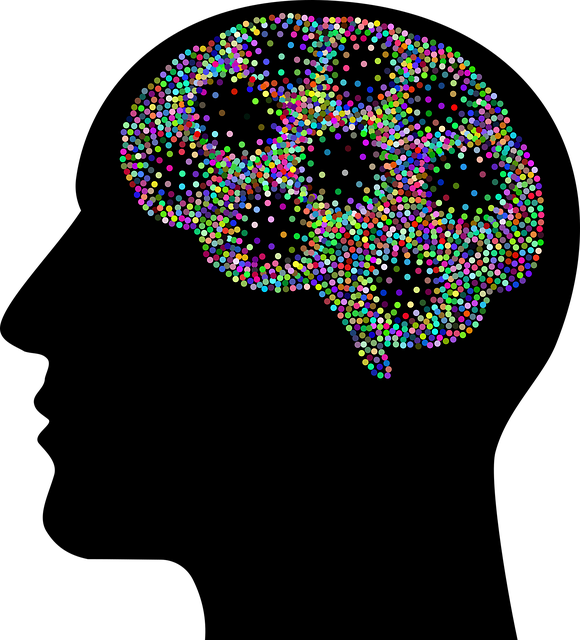Castle Rock Gender Identity Therapy focuses on developing essential coping skills for navigating challenging situations and stressors, emphasizing cultural sensitivity and inclusive treatment. Through techniques like conflict resolution, mindfulness meditation, and stress management workshops, clients build emotional resilience and learn healthy ways to cope with life's obstacles. Building mental resilience involves self-awareness exercises, enhancing mental health literacy, effective communication strategies, and building a supportive network. Regular reflection and adapting coping mechanisms over time ensure continued progress in personal growth, while incorporating new techniques from advocacy and policy analysis ensures relevance in addressing challenges, ultimately fostering emotional well-being.
Coping skills development is a vital aspect of therapy, enabling individuals to navigate life’s challenges with resilience. This article explores the significance of coping mechanisms in therapeutic contexts, focusing on the role of Castle Rock Gender Identity Therapy (CRGIT) in fostering effective strategies. We provide an in-depth guide, from understanding coping skills to practical steps for building resilience. Additionally, we discuss maintaining progress and adjusting these skills over time, offering valuable insights into CRGIT’s impact on personal growth.
- Understanding Coping Skills and Their Significance in Therapy
- The Role of Castle Rock Gender Identity Therapy in Developing Effective Coping Mechanisms
- Strategies for Building Resilience: A Step-by-Step Guide
- Maintaining Progress and Adjusting Coping Skills Over Time
Understanding Coping Skills and Their Significance in Therapy

Coping skills are adaptive behaviors and strategies individuals use to navigate and manage challenging situations, emotions, or stressors. These skills play a pivotal role in therapy, particularly in Castle Rock Gender Identity Therapy, where clients often face complex issues related to identity, self-acceptance, and societal challenges. Understanding and fostering effective coping mechanisms is crucial for therapeutic progress.
In the context of mental health care, especially with diverse patient populations, cultural sensitivity is essential. Therapists help clients explore and develop personal coping strategies while considering Cultural Sensitivity in Mental Healthcare Practice. This involves learning conflict resolution techniques to handle internal and external conflicts, as well as stress reduction methods to promote emotional resilience. By integrating these skills, therapy becomes more inclusive and effective, empowering individuals to cope with life’s obstacles in healthy ways.
The Role of Castle Rock Gender Identity Therapy in Developing Effective Coping Mechanisms

Castle Rock Gender Identity Therapy plays a pivotal role in helping individuals navigate and cope with unique challenges related to gender identity. Through specialized therapeutic approaches, this organization facilitates personal growth and empowers clients to develop effective coping mechanisms. By fostering a safe and supportive environment, Castle Rock Gender Identity Therapy encourages exploration of one’s identity, promotes self-acceptance, and provides valuable tools for stress management.
Their comprehensive programs often include Stress Management Workshops led by experts, incorporating Mindfulness Meditation techniques as well as teaching the importance of Self-Care Routine Development for Better Mental Health. These strategies empower individuals to confront stressors, regulate emotions, and cultivate resilience, ultimately enhancing their overall well-being.
Strategies for Building Resilience: A Step-by-Step Guide

Building resilience is a crucial aspect of coping skills development, and it’s where Castle Rock Gender Identity Therapy can offer valuable guidance. Resilience equips individuals with the ability to bounce back from challenges and adapt to change. Here’s a step-by-step guide to help you fortify your mental fortress:
1. Foster Self-Awareness Exercises: The journey begins with introspection. Reflect on your thoughts, emotions, and triggers. Understanding your unique response to stress is key to managing it effectively. Journaling, meditation, or therapy sessions can aid in this process, allowing you to identify patterns and gain a deeper sense of self.
2. Enhance Mental Health Awareness: Educate yourself about mental health and well-being. Recognize the signs of stress, anxiety, or depression early on. The more you understand these challenges, the better equipped you are to tackle them head-on. This awareness can be cultivated through online resources, support groups, or by seeking professional guidance from therapists like Castle Rock Gender Identity Therapy experts.
3. Develop Communication Strategies: Effective communication is a powerful tool for coping. Learn to express your feelings and needs assertively without being defensive. Practice active listening too, as it fosters understanding and strengthens relationships. This skill set can be honed through role-playing exercises or simple conversations with trusted friends or family members.
4. Build a Support Network: Surround yourself with like-minded individuals who uplift and support you. A strong support system provides a safe space to share your struggles and celebrate victories. Consider joining communities, attending meetups, or seeking therapy groups where you can connect with others facing similar challenges, offering both comfort and valuable insights.
Maintaining Progress and Adjusting Coping Skills Over Time

Maintaining progress and adapting coping skills over time is a crucial aspect of personal growth, especially in the context of Castle Rock Gender Identity Therapy. The therapeutic journey often involves learning and practicing various strategies to manage stress, emotions, and challenges. As individuals navigate different life stages, their needs and circumstances may change, requiring them to refine and adjust their coping mechanisms. This process entails regular reflection and reassessment, where one can identify what works best for them and what needs updating or replacing.
Over time, as inner strength development becomes more solidified, individuals can better manage stressors and maintain emotional well-being. This evolution may also be influenced by external factors, such as life experiences, relationships, and societal shifts. Incorporating new techniques from Mental Health Policy Analysis and Advocacy, one can continuously enhance their coping arsenal, ensuring they remain effective and relevant in addressing personal challenges. By fostering Emotional Well-being Promotion Techniques, individuals equipped with robust coping skills can lead more fulfilling lives, even amidst life’s twists and turns.
Coping skills development is a transformative process that plays a pivotal role in mental well-being, especially for individuals navigating gender identity challenges. As highlighted by Castle Rock Gender Identity Therapy, these skills are not one-size-fits-all; tailored strategies like those offered in their programs can significantly enhance resilience. By following practical guides and maintaining consistent effort, as discussed in this article, one can effectively manage stressors and foster personal growth. For those seeking support, exploring therapeutic options, such as Castle Rock Gender Identity Therapy, offers valuable tools to build a robust coping toolkit for life’s journeys.














